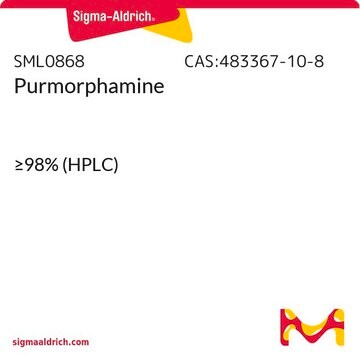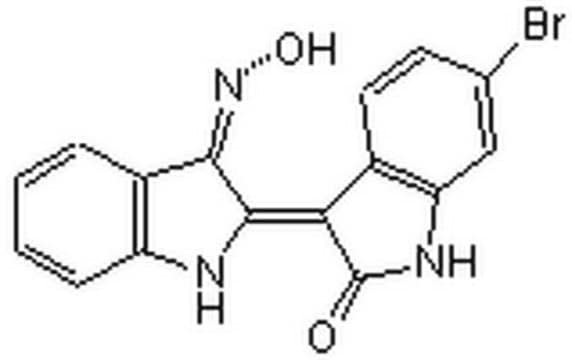361571
CHIR99021
≥95% (HPLC), liquid, GSK-3 inhibitor, Calbiochem
Sinónimos:
InSolution GSK-3 Inhibitor XVI, CHIR99021, 6-(2-(4-(2,4-Dichlorophenyl)-5-(4-methyl-1H-imidazol-2-yl)-pyrimidin-2-ylamino)ethyl-amino)-nicotinonitrile
About This Item
Productos recomendados
product name
GSK-3 Inhibitor XVI, CHIR99021, InSolution, ≥95%, 25 mM
Quality Level
assay
≥95% (HPLC)
form
liquid
manufacturer/tradename
Calbiochem®
storage condition
OK to freeze
avoid repeated freeze/thaw cycles
desiccated (hygroscopic)
protect from light
shipped in
ambient
storage temp.
−70°C
InChI
1S/C22H18Cl2N8/c1-13-10-29-21(31-13)17-12-30-22(32-20(17)16-4-3-15(23)8-18(16)24)27-7-6-26-19-5-2-14(9-25)11-28-19/h2-5,8,10-12H,6-7H2,1H3,(H,26,28)(H,29,31)(H,27,30,32)
InChI key
AQGNHMOJWBZFQQ-UHFFFAOYSA-N
General description
Biochem/physiol Actions
GSK-3 α and β
Packaging
Warning
Physical form
Other Notes
Ring, D.B., et al. 2003. Diabetes52, 588.
Bennett, C.N., et al. 2002. J. Biol. Chem.277, 30998.
Cline, G.W., et al. 2002.
Diabetes51, 2903.
Legal Information
Storage Class
10 - Combustible liquids
wgk_germany
WGK 2
flash_point_f
188.6 °F - closed cup - (refers to pure substance)
flash_point_c
87 °C - closed cup - (refers to pure substance)
Certificados de análisis (COA)
Busque Certificados de análisis (COA) introduciendo el número de lote del producto. Los números de lote se encuentran en la etiqueta del producto después de las palabras «Lot» o «Batch»
¿Ya tiene este producto?
Encuentre la documentación para los productos que ha comprado recientemente en la Biblioteca de documentos.
Los clientes también vieron
Nuestro equipo de científicos tiene experiencia en todas las áreas de investigación: Ciencias de la vida, Ciencia de los materiales, Síntesis química, Cromatografía, Analítica y muchas otras.
Póngase en contacto con el Servicio técnico










